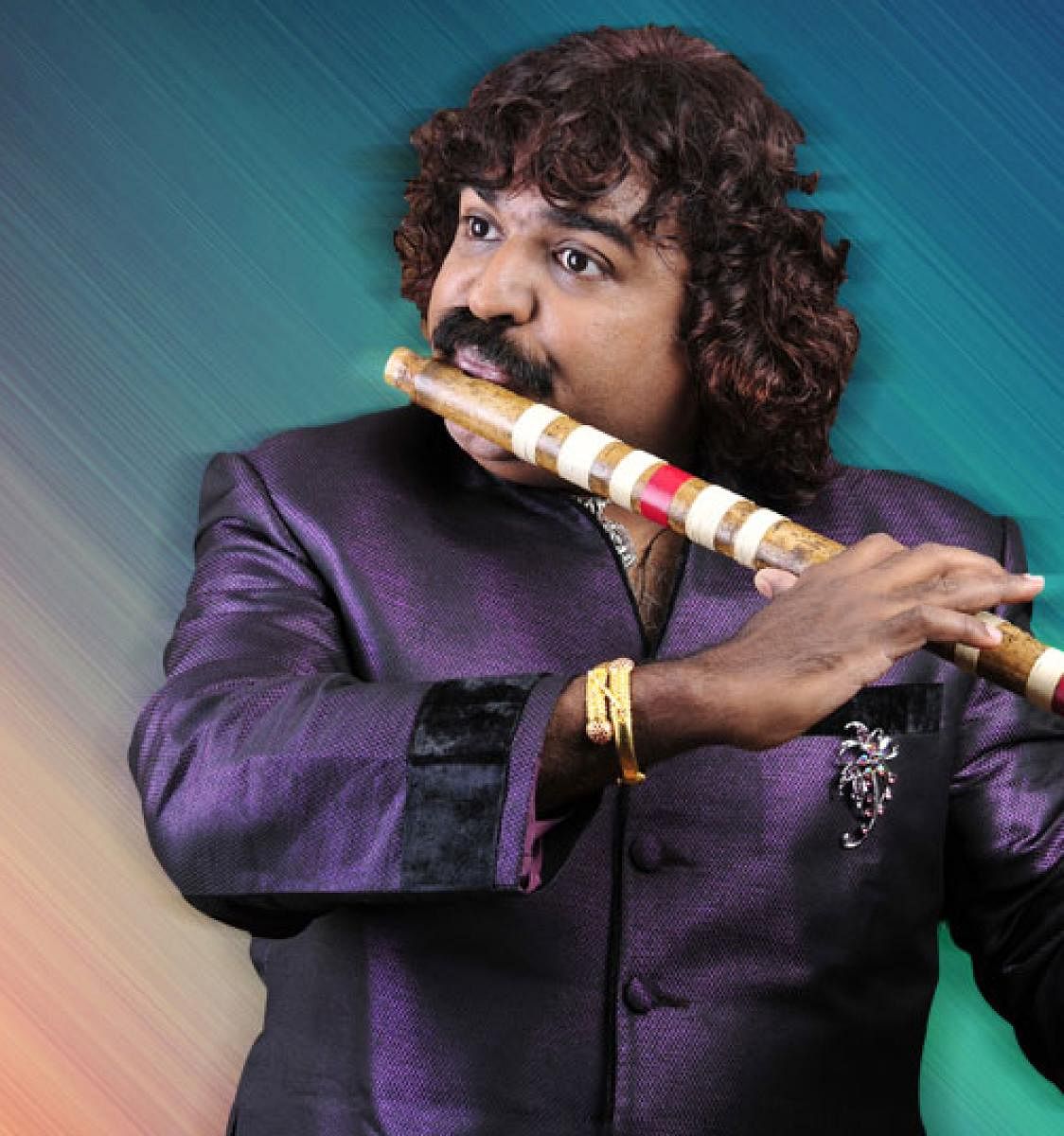
Famed flautist Pravin Godkhindi’s Kannada book was launched in Bengaluru on Friday. Titled ‘Prahara: Haduva Gadiyara’, the book tries to uphold the therapeutic values of ragas. It is about how a singing clock nurtures a society. Its English version will be out soon. The book, published by Sapna Book House, is priced at Rs 120. Excerpts:
How long did you take to write it, and what was your inspiration?
I wrote the story first in English during the first wave of the pandemic. It took me almost seven-eight months. I then wrote it in Kannada. My inspiration is my experience as a musician. I have heard stories from my father about legendary musicians during the 60s and 70s. My experiences as a child growing up in Dharwad helped. Although we never lived there for a long time, I always had a connection with the city because that was my father's home town. I recollected listening to Gangubai Hangal ji, Basavaraj Rajguru ji, and Pt Bhimsen Jioshi ji, interacting with them and knowing about their stories and experiences.
Could you explain how time cycles are related to ragas, and how you have represented it in fiction?
Having an engineering background, the concept of the singing clock, the technological part of it, interested me. The book is based on the Prahara system of Hindustani music. One prahara is equal to three hours. There are four in the day starting at 6am and four in the night starting at 6pm. From my childhood, I have always heard musicians follow this Prahara or the Raga-time system. I am comfortable performing & listening to the ragas of that particular time.
In the story, the main character, Pt Shardaprasad Ramdurgi tells the society the therapeutic value of the ragas. He builds a clock along with a jukebox. They are interconnected. There are 24 LPs of his own recordings. So 24 ragas in a day are played sequentially, according to the time. The story is set in the 60s, a time when there were no tape recorders and batteries in rural India. People listening to the Ragas get inspired, and rejuvenated. He plans to spread the fragrance of Indian classical music in the society and build a culturally sophisticated society.
Who are your favourite authors? What do you love about them? Could you name some books you love?
I did my schooling in Hyderabad, Goa, and Delhi. So my exposure to Kannada literature was minimal. In fact I started learning Kannada only in my eighth grade although we all spoke Kannada at home. Things changed when I shifted to Bangalore. So in the last 25 years, my association with renowned authors, poets and lyricists has significantly improved my hold over the language. Spending time with H S V sir, Vishweshwar Bhat, Jogi, M N Vyasa Rao, NS Lakshminarayan Bhat, and Ravi Belagare polished my Kannada. I have read SL Bhyrappa, and BeeChi while DR Bendre is my favourite poet.
What more can readers expect from the book?
This book could also become a guide to Hindustani students. I have described the possible 24 ragas of a day. I have spoken about some important jargons used in music and given their meaning. It has elements such as a tiny love story, hope, and inspiration. There is suspense and the ultimate triumph as well. I have written about a man's passion for his music. I have exuded a lot of positivity through Ragas in my writing.